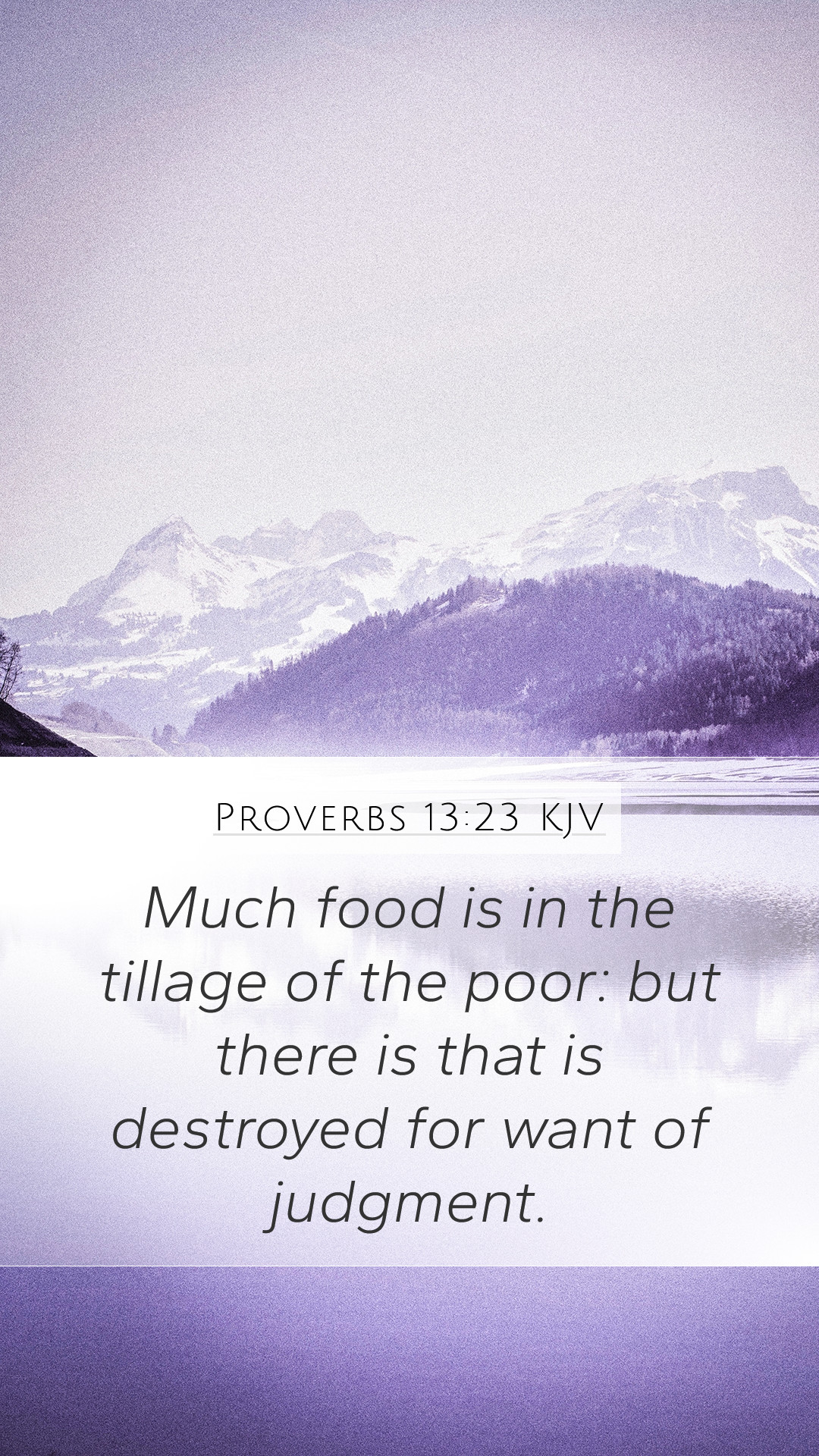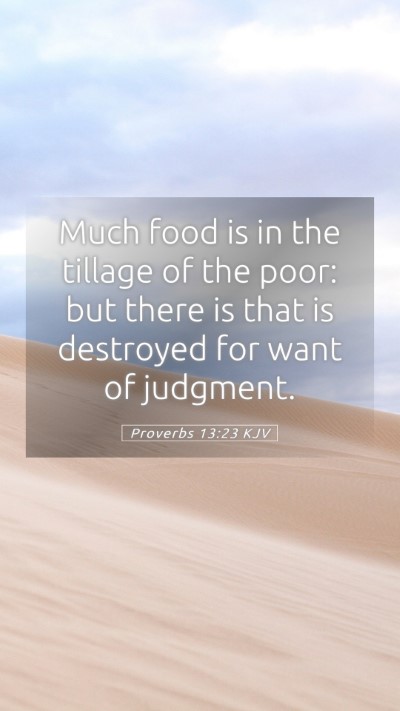Understanding Proverbs 13:23
Proverbs 13:23 states: "Much food is in the tillage of the poor: but there is that is destroyed for want of judgment." This verse provides valuable insights regarding the themes of diligence, resource management, and the consequences of poor decision-making. Below, we analyze the verse using various insights from well-known public domain commentaries.
Verse Meaning Overview
This verse serves as a reminder of how prosperity is often linked to hard work and wise stewardship. The first part highlights that the poor, through labor (or tillage), can produce much food, which emphasizes the value of effort and the potential of cultivation. The latter portion warns that without sound judgment, resources can be wasted, indicating that success relies not only on hard work but also on wise choices.
Insights from Commentaries
Matthew Henry's Commentary
Matthew Henry suggests that this verse illustrates a stark contrast between the industriousness of the poor and the negligence of others who may neglect their resources. He emphasizes that labor and cultivation can provide bountiful returns, but it is the absence of wisdom in managing those returns that leads to destruction. He highlights the societal principles of diligence as a pathway to abundance.
Albert Barnes' Notes on the Bible
Albert Barnes clarifies that "much food" refers to a harvest resulting from cautious and diligent tillage. He interprets this verse as demonstrating that the poor can maximize their circumstances through hard work. However, he warns that there are those whose wastefulness, typically due to a lack of judgment or foresight, causes their own downfall. Thus, the core message revolves around the importance of temperance and insight when dealing with resources.
Adam Clarke's Commentary
Adam Clarke elaborates that the "tillage of the poor" implies that through hard work and dedication, individuals with less economic power can reap significant benefits from their efforts. Furthermore, Clarke notes that the warning against lacking judgment highlights how critical wisdom is to avoiding waste. His reflections encourage believers to view prosperity as a product of both labor and sound decision-making.
Practical Applications
This verse invites reflection on various aspects of life, including:
- Diligence: Emphasizes the importance of hard work in achieving one’s goals.
- Resource Management: Encourages wise decisions to avoid wastage of resources.
- Judgment: Advocates for the need to cultivate both skills and wisdom in decision-making.
Related Bible Cross References
- Proverbs 12:11: "He that tilleth his land shall be satisfied with bread: but he that followeth vain persons is void of understanding."
- Proverbs 21:5: "The thoughts of the diligent tend only to plenteousness; but of every one that is hasty only to want."
- Ecclesiastes 9:10: "Whatsoever thy hand findeth to do, do it with thy might; for in the grave, whither thou goest, there is neither work nor device nor knowledge nor wisdom."
Conclusion
Proverbs 13:23 adds to our understanding of Scripture by underscoring the relationship between labor and wisdom. This verse serves as an essential lesson for contemporary Bible study and reflections on how to interpret Bible verses within everyday life.
Further Exploration
For those interested in deeper study, consider exploring:
- Bible study groups dedicated to Proverbs for shared insights.
- Online Bible study tools that provide further resources for analysis.
- Bible study guides specifically focusing on themes of wisdom and labor.


